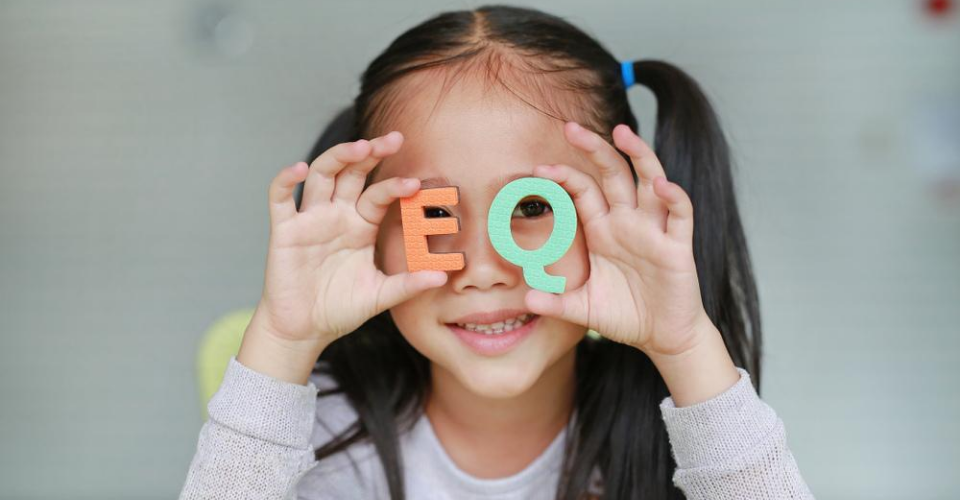
Emotional intelligence for children
I am Anjushree Mehta, a 32 year old housewife. I have a son, Aditya, 6 years old studying in the 1st grade of a well-known school of Ahmedabad. I am amazed by the burden of studies on him. There is plenty of material in magazines and newspapers these days about the development of emotions in children and the role of schools in these development. Could you expand on the role of schools in the emotional developmental of the child? Is there some guidance that schools can start implementing for the emotional problems of a normal child?
People who are emotionally adept – who know and manage their own feelings well, and who read and deal effectively with other people’s feelings – are at an advantage in any domain of life, whether romance and intimate relationships or picking up the unspoken rules that govern success in organizational politics. People with well-developed emotional skills are likely to be content and effective in their lives, mastering the habits of mind that foster their own productivity; people who cannot marshal some control over their emotional life fight inner battles that sabotage their ability for focused work and clear thought.
The time has come to broaden our notion of spectrum of talents. The single most important contribution education can make to a child’s development is to help him toward a field where his talents best suit him, where he will be satisfied and competent. We have completely lost sight of that. Instead we subject everyone to an education where, if you succeed, you will be best suited to be a college professor. And we evaluate everyone along the way according to whether they meet that narrow standard of success. We should spend less time ranking children and more time helping them to identify their natural competencies and gifts, and cultivate those. There are hundreds and hundreds of ways to succeed, and many, many different abilities that will help you get there. The capacity of social perception is one such talent that an education can nurture rather than ignore or even frustrate. By encouraging children to develop a full range of the abilities that they will actually draw on to succeed, or use simply to be fulfilled in what they do, school becomes an education in life skills. The achievement tests that sorts out people into those who would be shunted towards technical skills and those destined for college are based on a limited notion of intelligence, one out of touch with the true range of skills and abilities that matter for life. One needs to give parents and teachers a clear guidance about the realms that children will take a spontaneous interest in, and where they will do well enough to develop the passions that one day could lead beyond proficiency to mastery.
There should a subject in feelings – your own and those that erupt in relationships. The teachers and children should focus on the emotional fabric of a child’s life. The strategy uses the tensions and traumas of children’s lives as the topic of the day. Teachers speak about real issues – hurt over being left out, envy and disagreements that escalate into physical aggression. Learning does not take place in isolation from kids’ feelings. Being emotionally literate is as important for learning as instruction in studies. The goal is raising the level of social and emotional competence in children as part of their regular education – not just something taught remedially to children who are faltering and identified as troubled but a set of skills and understandings essential for every child. The psychological and motivational lessons are more deeply learned if they involve an immediate experience of what is being taught conceptually. The goal is to teach a core of emotional and social competencies, such as impulse control, managing anger, and finding creative solutions to social predicaments. At first glance these may seem uneventful, much less a solution to the dramatic problems they address. But that is largely, because like good childrearing at home, the lessons imparted are small but telling, delivered regularly and over a sustained period of years. That is how emotional learning becomes ingrained; as experiences are repeated over and over, the brain reflects them and gets habituated to apply them in times of duress, frustration, hurt. And while the everyday substance of emotional literacy may look mundane, the outcome – decent human beings – is more critical to our future.



